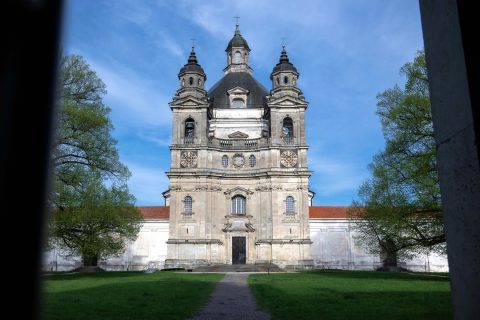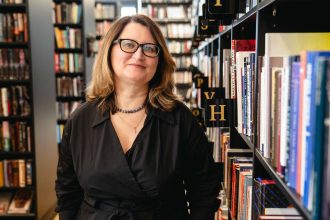The Kazakevičius family from Kaunas are avid visitors of the Pažaislis Music Festival. Gitana Kazakevičienė, the director of Krepšinio namai (Lithuanian House of Basketball), who told us about this tradition, counted that she and her husband Tomas have been attending the festival for twenty-three years, always bringing their three daughters along. The eldest Gerda first visited it when she was two years old, and the youngest Urtė and Saulė have been attending the festival since birth.
Attending the festival has become an important family tradition that has grown to include a circle of friends. It helps broaden horizons, discover new places, and create lasting memories together. I decided to find out what kind of magic this festival holds that keeps drawing the family back for more than twenty summers.
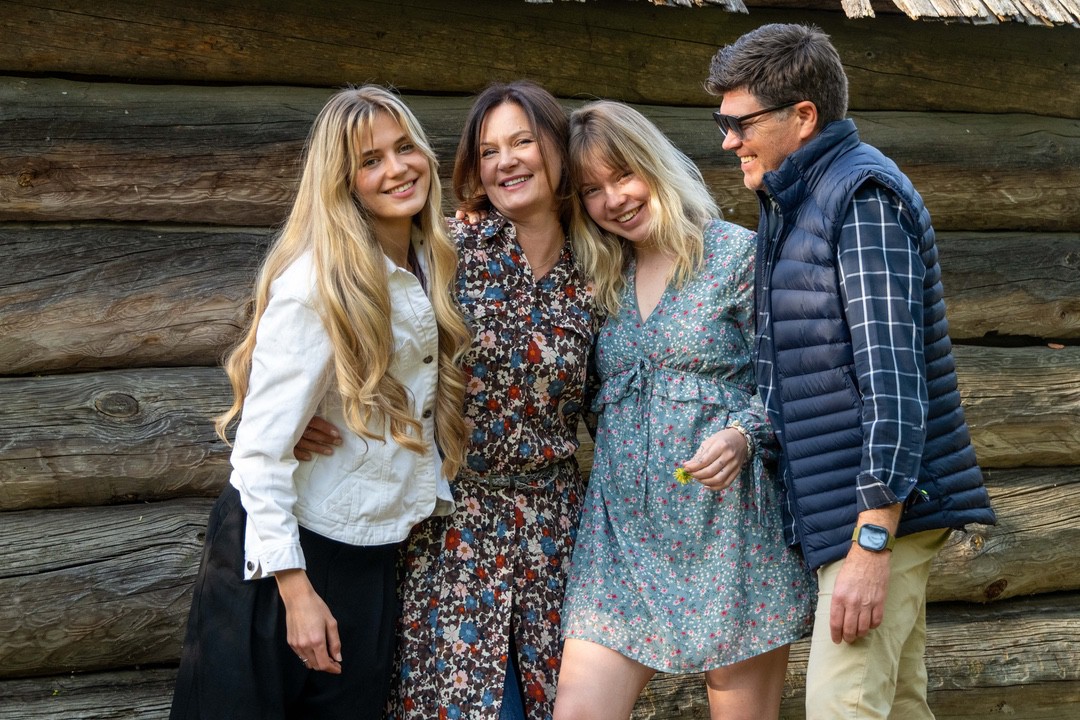
For Gitana, the festival symbolizes the beginning of the summer event season, and even twenty years ago, it appeared as an attractive destination for the whole family. She first attended with her husband Tomas and their firstborn Gerda, who was just two years old at the time. “With kids, you want to go somewhere, listen to music, be among people, but it’s hard for children to sit still in one place.” The format of this festival, especially in the monastery setting, under the linden trees, was ideal. We would stretch out a blanket, bring snacks, the children could run around, play, chat with other people, and we could enjoy the music and the environment,” Gitana recalls. Over the years, the family has grown in size and the desire to attend the festival has only grown stronger. As if to continue the unwritten tradition of expanding the circle of festival lovers, the family invited their friends and parents and gathered a fun group of people to visit not only the events but also the different festival spaces.
Indeed, the Pažaislis Music Festival’s repertoire always offers unexpected places for music. In Gitana’s opinion, concerts held in unconventional spaces are more memorable and add a great deal of charm to the experience. A synagogue, a barn, the BLC terrace, or the Žiežmariai Cultural Center – places one wouldn’t normally visit – are just a few of the venues the festival has invited people to discover through music. What stood out most for her was the perfectly curated symphony of space and music at one of the Kaunas airfields. However, that’s not the only aspect that keeps drawing her back.
Although the festival is associated with classical music, it offers more than that. Visitors can also find concerts of sung poetry, jazz, and blues. The unique space of the monastery also invites people to return every year. “Pažaislis is a large, yet cozy area. It is absolutely magical to listen to music surrounded by lime trees, with swallows diving around and watching the sunset. The environment of the monastery gives good energy to the whole festival and, I think, acts as a commitment to attend with dignity, not to be swayed by popular fads,” Gitana says.
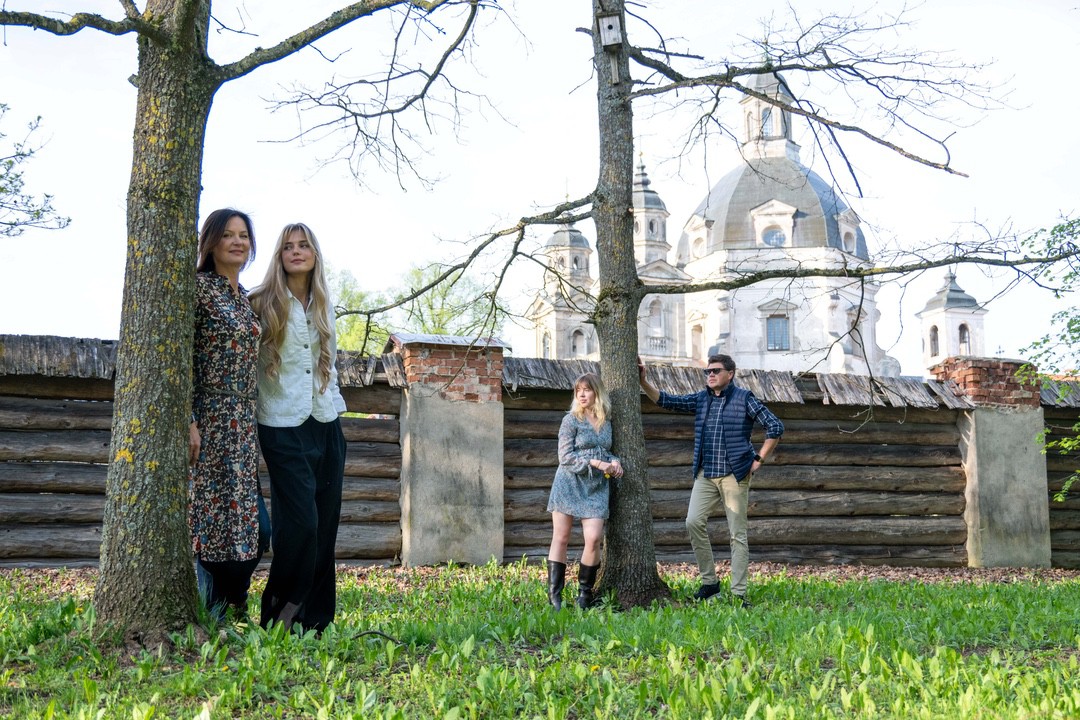
Although it might seem easier to attend classical music events without children, for Gitana and her husband, it was important to introduce their kids to a variety of music. “We wanted to counter the often-heard prejudice – especially from teenagers – that certain kinds of music are boring. I always ask: have you really listened to it, have you ever been to a concert? I tried to gently introduce classical music to my daughters. That’s how you broaden your horizons and cultivate taste. I believe we should expose children to the world as widely as possible, and then they’ll be able to choose what they like and what they don’t. It’s the same with food, isn’t it? You have to try new tastes, and when it comes to music, you have to hear, feel, and understand what you like and even when you like it. Nowadays, my daughters listen to a wide variety of music, but more and more I find that they do not refuse to listen to classical music. Of course, there were times when the children did not want to go to events, and it was just the two of us: my husband and me. It is important not to force them. The preparation is long, but when the children turn 17–18, things start to happen naturally. We have many shared memories, and the children always enjoy hearing stories about themselves when they were little and the adventures we experienced together,” my interviewee says.
How did Gitana’s daughters receive this experience? After all, they essentially spent their summers in Pažaislis, on the grass. Gitana laughs, saying that one definitely shouldn’t expect small children to sit quietly and listen to music or to enjoy it right away – children experience the festival through movement, with the music serving merely as a background to their action and play. However, Gitana is convinced that the background eventually becomes subconsciously recognizable, because the child feels good, sees mom and dad having fun, and is surrounded by kind and attentive festivalgoers.
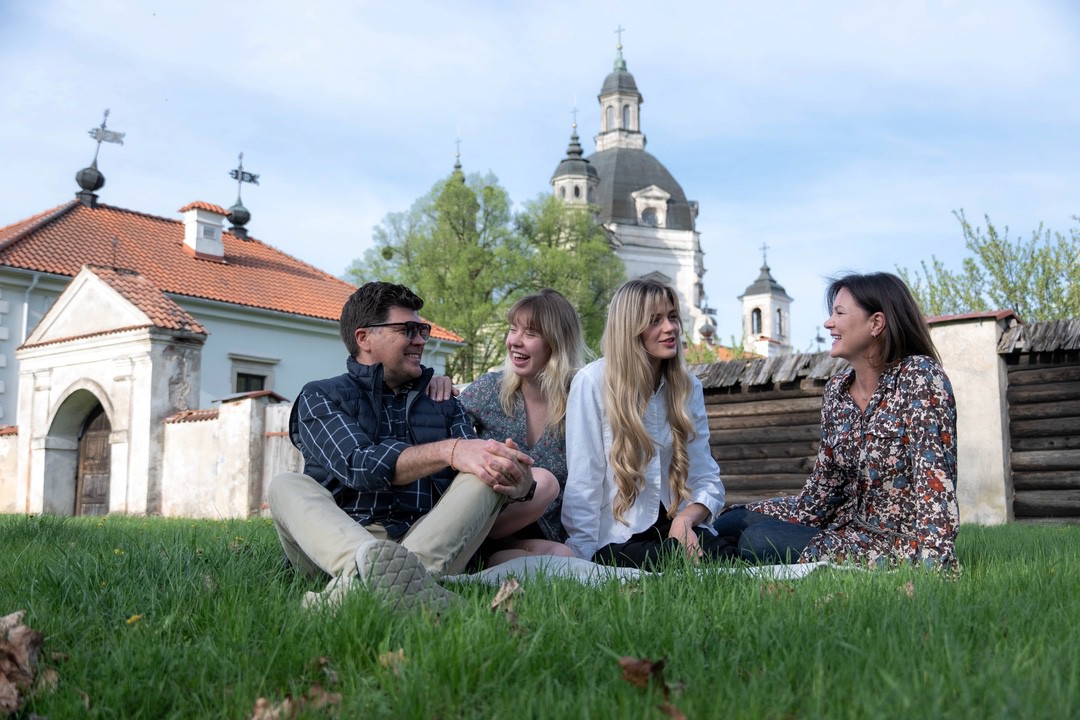
“It’s especially beautiful for me to watch parents coming with their children, to see little ones running around and playing, wrapped in music. What more could you possibly give a child?” the woman says with a smile. I nod in agreement, though I admit to my interviewee that small children and a classical music festival don’t seem like the most harmonious pair at first glance. Do festivalgoers respond positively to these enthusiastic little guests? “The supportive and welcoming atmosphere of the festival and its audience has truly changed the experience of attending events,” the woman assures, adding that it’s simply a matter of choosing the right space for such an experience.
Why is this tradition important for the family? “It’s important to keep traditions. We have some tied to seasonal holidays that bring us together with friends and family to spend the evening. Most holidays happen naturally, like Christmas Eve or Christmas Day, but we’ve also created a few of our own. Concerts have become one of them, and if there is a Pažaislis concert, no one questions where our family spends its time,” she says. Still, the Pažaislis Music Festival isn’t the only place where the entire Kazakevičius clan gathers – Kaunas Jazz, which takes place in spring, is also an important occasion to celebrate. The tradition of attending this festival also started when the children were very young. “We started with children’s drawing competitions, where they would cover the whole square with crayons while their parents listened to music. Kaunas Jazz is an unreal festival for Kaunas citizens, with everyone jazzing, meeting friends, music floods squares and plazas – you can’t escape it. I know people who used to take holidays because there was no time for work during the concerts and jam sessions. The Pažaislis Music Festival, which lasts all summer, is definitely more suitable for working people,” Gitana laughs.
And how could we imagine a typical Pažaislis Music Festival goer? Gitana says that the image that first comes to mind is that of an older, elegant lady with lipstick on, walking arm-in-arm with a friend to a concert. However, over the years, Gitana and her family have noticed more and more young people with children. Perhaps this observation is tinged with nostalgia, reminding them of their own first visits. According to her, young people prefer unconventional or unusual venues, so the audience is really diverse.
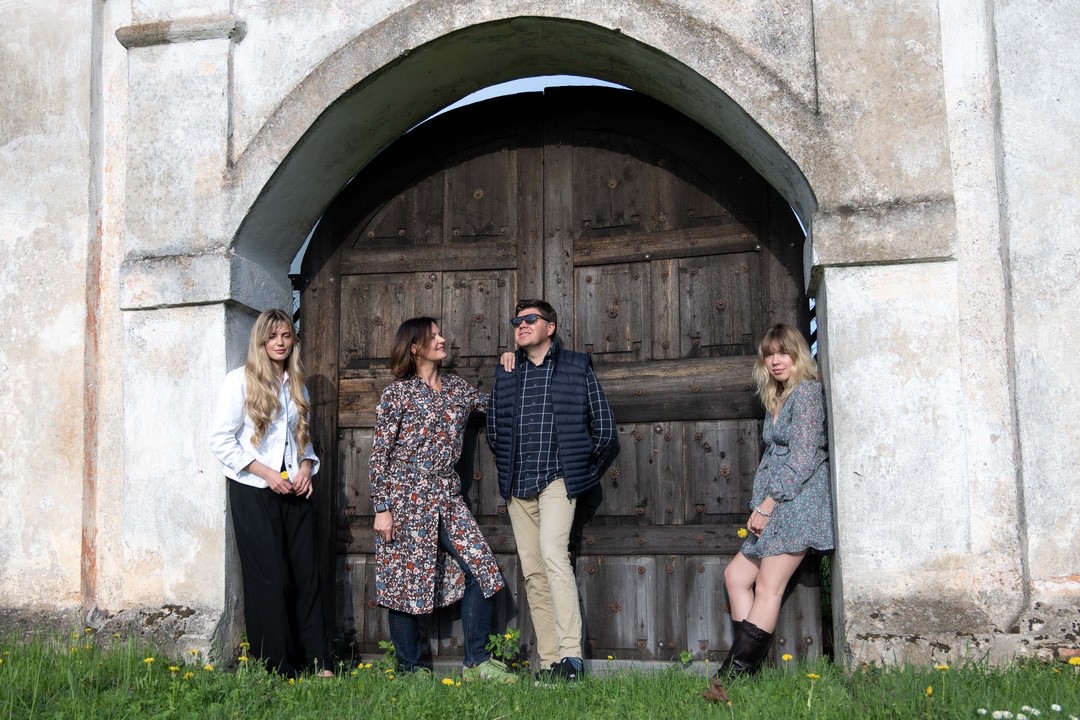
This summer is a great opportunity to try this festival out, so what would Gitana wish for first-time visitors? “Classical music is wide-ranging, with many artists and venues on offer, so I would recommend choosing the one closest to you. If someone invites you, make sure you join them, I think you’ll be pleasantly surprised. And although the festival sounds solid, it is diverse, and one thing happens in the courtyard of Pažaislis Monastery and quite the other in a barn in Rumšiškės. I can’t guarantee that everyone will become a fan, but it’s worth a try.”
What we constantly repeat sometimes becomes self-evident, but without it, we would be different. I asked Gitana if she noticed any new things that the Pažaislis Music Festival brought to her everyday life. “One of my daughters, who is now studying abroad, used to say that her happy place is a warm summer weekend morning, when all the sisters wake up, home is already filled with classical music (I often chose Vivaldi or Chopin), I am enjoying my morning coffee in the terrace and my sleepy daughters come to me and curl up on my lap. This is my happy place too,” the interviewee shares a beautiful memory. After thanking Gitana for the interview, and with the beautiful thoughts about her first visits still on my mind, I already know what I will be doing this summer – my daughter has just turned two and it’s time to start a new tradition.


